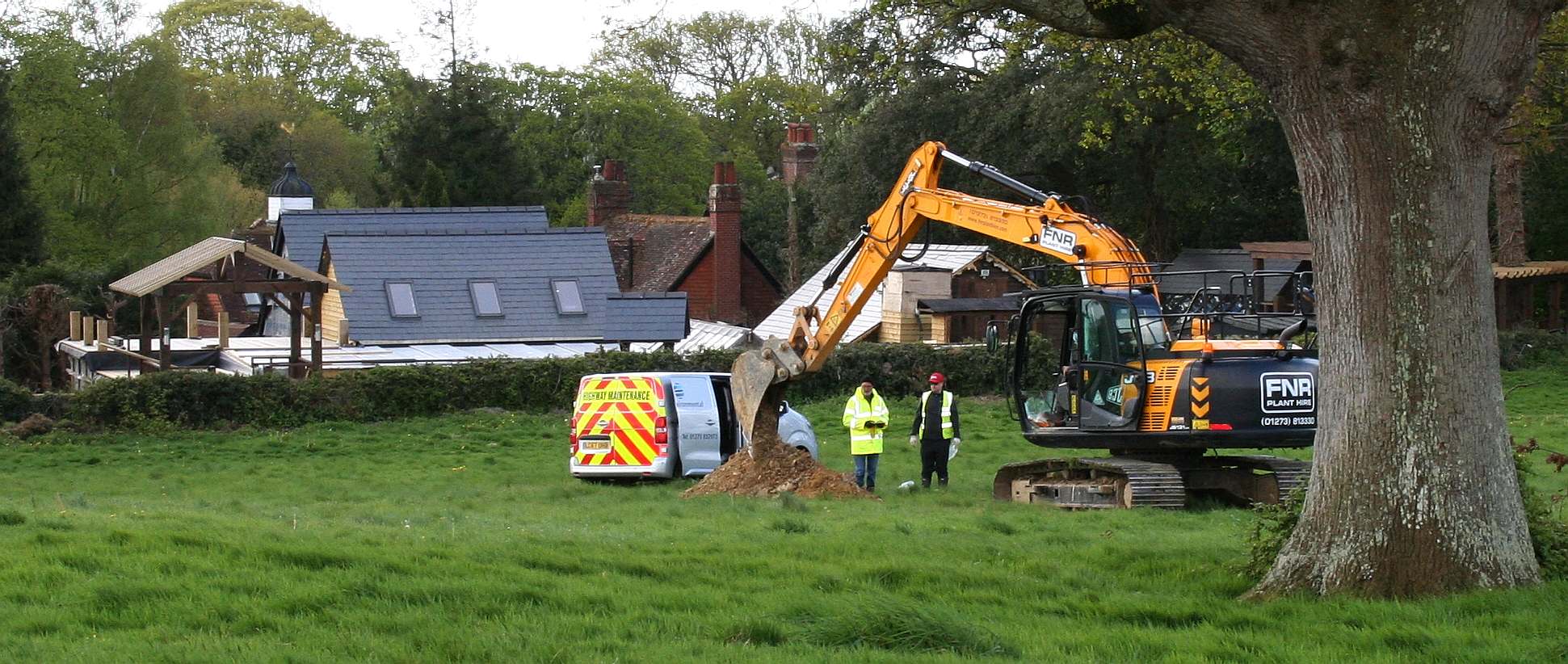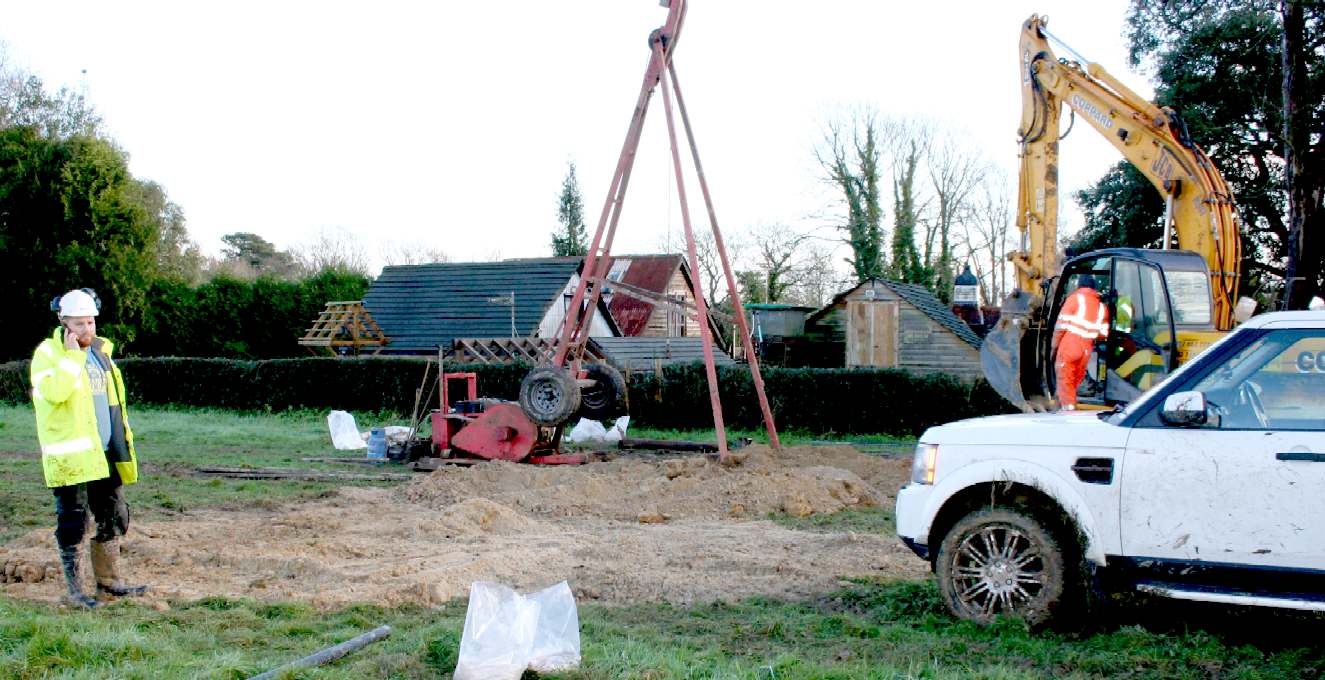|
HOME | CASE STUDIES | HISTORY | LAW | POLITICS | RIGHTS | SITE INDEX
|
||||
|
WATER RIGHTS - Clarion Housing Group and Thakeham Homes are in danger of spoiling an ancient well that supplies water to many concerns in this vicinity. In the picture you can see a hired digger scooping out trenches to test drainage by pouring in water and measuring the rate of absorption by the soil. It seems to us that if you build houses on the ground that feeds the ancient well, that contamination from garden treatments such as Roundup and engine oils, etc., will find its way into this well leading to claims against the owners of the houses who would have been sold a pup, and/or against the Council for approving the proposal, by way of a negligence claim, and/or against the vendors or developers. Any way you look at it the developers and Council concerned should take steps to ensure that no development takes place until the proper tests and evaluations have been completed, and after that stage, to ensure that any houses built in this location will not be on a path that includes the water table that feeds the ancient well.
Any failure to conduct the proper tests and house situation, along with safe sewage disposal, may tempt the Secretary of State to call in the application. We imagine that all of those with a financial interest in this piece of greenbelt will want to resolve issues before it starts to get complicated.
INTRODUCTION
HINKLEY,
CALIFORNIA - GROUND WATER CONTAMINATION - The
town of Hinkley, California,
located in the Mojave Desert, (about 121 miles driving distance
north-northeast of Los Angeles) had its groundwater contaminated with
hexavalent chromium starting in 1952, resulting in a legal case
against Pacific Gas & Electric (PG&E) and a multimillion-dollar
settlement in 1996. The legal case was dramatized in the film Erin
Brockovich, released in 2000.
After
many arguments, the case was referred to arbitration with maximum
damages of $400 million. After the arbitration for the first 40 people
resulted in roughly $110 million,
PG&E reassessed its position and decided to end arbitration and
settle the entire case. The case was settled in 1996 for $333 million,
the largest settlement ever paid in a direct-action lawsuit in U.S.
history.
LEAD CASE: In the case of Wealden District Council and planning application WD/2015/0090/MAO, originally filed by Tim Watson in 2014, then re-filed by Gleeson Developments in 2015, and taken over by Clarion Group and Thakeham Group, there appear to be multiple errors in applying these policies to greenbelt, including failing to protect open spaces and the historic built environment, and not promoting sustainable transport.
The Horse Sanctuary Trust are following this case with much interest. We consider that the paper trail will eventually make interesting reading, leading us to who is making the decisions and the money ........
GREENBELT - Digging up Greenfield sites for quick profits from windfall planning consents is ruining the heritage of the nation. Once it is gone, it is gone. Britain is short of genuinely affordable housing that developers are loath to provide where all they want is the money. It may be that Clarion Housing and Thakeham intend building affordable units on this site. They should also bear in mind the requirement for sustainable development in United Nations terms. Copyright photograph © April 26 2018, Herstmonceux Museum Limited. All rights reserved. You may not copy this picture except for educational use.
|
||||
|
Scotland Legislation | Wales Legislation | Northern Ireland Legislation | HMSO
|




